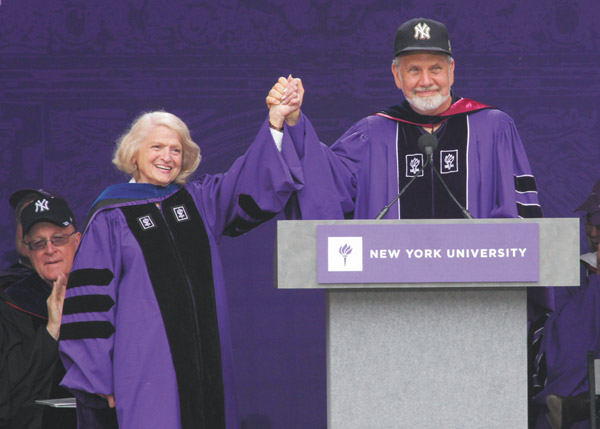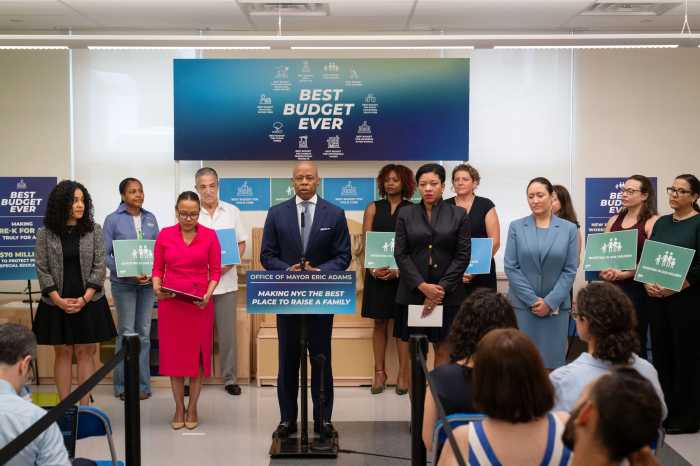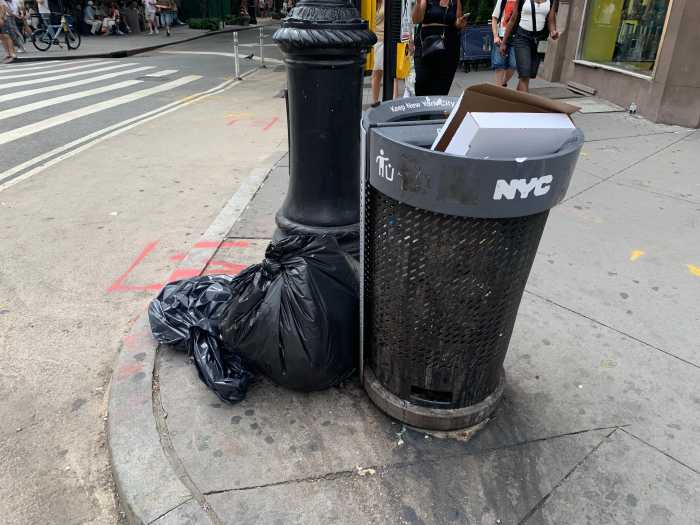It was in the late winter of 2004 when I met Edie Windsor and the woman she would marry several years later in Toronto, Thea Spyer. A couple of weeks before, Gavin Newsom, then mayor of San Francisco, declared that city had the authority to marry same-sex couples.
Relying on a legal argument that nothing in New York State law forbade marriage by gay and lesbian couples, activists planned a demonstration outside the City Clerk’s Office, then across the street from City Hall, demanding that same-sex marriage licenses be issued here as well. When a crowd got together at the L.G.B.T. Community Center a few evenings before the demo to strategize and make signs, Edie and Thea were among them –– certainly the oldest couple on hand.
The demonstration had no immediate effect on the right to marry here in New York, and Newsom’s experiment in San Francisco was soon halted. The following year, marriage equality advocates won a trial court victory in Manhattan, but that was quickly appealed by Mayor Bloomberg and Attorney General Eliot Spitzer. We lost at the Court of Appeals in the summer of 2006.
When I met Edie and Thea, they were well into their 70s and Thea had suffered for decades from multiple sclerosis. By 2007, she was quite ill, and with marriage equality available only in Massachusetts –– and only for in-state couples –– the two women feared they would not see the day they could wed. With the help of the New York grassroots activist group Civil Marriage Trail — and six friends who helped handle Thea’s wheelchair at the airport –– the couple traveled to Toronto to marry. The following year, a state appellate court here ruled that marriages like Edie and Thea’s deserved recognition in New York.
Thea died in 2009, but even though the women enjoyed two years of married life among their more than four decades together, the federal government judged them to be legal strangers. Edie received an inheritance tax bill of more than $360,000.
Edie, who is now 84, has spent more than two years litigating against the Defense of Marriage Act, an endurance test she described as “joyous, just joyous.” She is energetic, passionate, opinionated, irreverent and articulate –– in short, a consummate New Yorker. It should be a point of pride for all L.G.B.T. New Yorkers that we have Edie and that it was she who won this smashing victory on behalf of gay and lesbian couples across the nation.
As each successive victory at the Supreme Court has done, Justice Anthony Kennedy’s finding — that DOMA “is invalid, for no legitimate purpose overcomes the purpose and effect to disparage and injure those whom the State, by its marriage laws, sought to protect in personhood and dignity” –– advances our ability to mount successful legal claims for full equality.
Kennedy did not take the bigger step we hoped he might and find that claims of sexual-orientation discrimination must be subjected to “heightened scrutiny” by the courts. Such a decision would have accelerated dramatically the vital work of clearing away the underbrush of homophobic marriage restrictions still in place in roughly three dozen states.
Similarly, the court’s decision to deny standing to those appealing a lower court decision striking down Proposition 8 put off for the moment the effort to litigate the fundamental question of whether same-sex couples have a federal constitutional right to same-sex marriage.
Last Wednesday added two very significant victories and did nothing to foreclose continued efforts to press for marriage rights, both in state courts around the country and before the federal judiciary.
This editorial was written by Paul Schindler, editor of Gay City News, where it first ran.






































